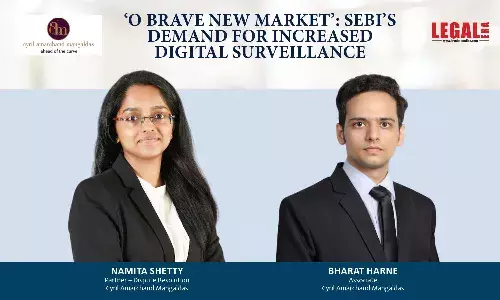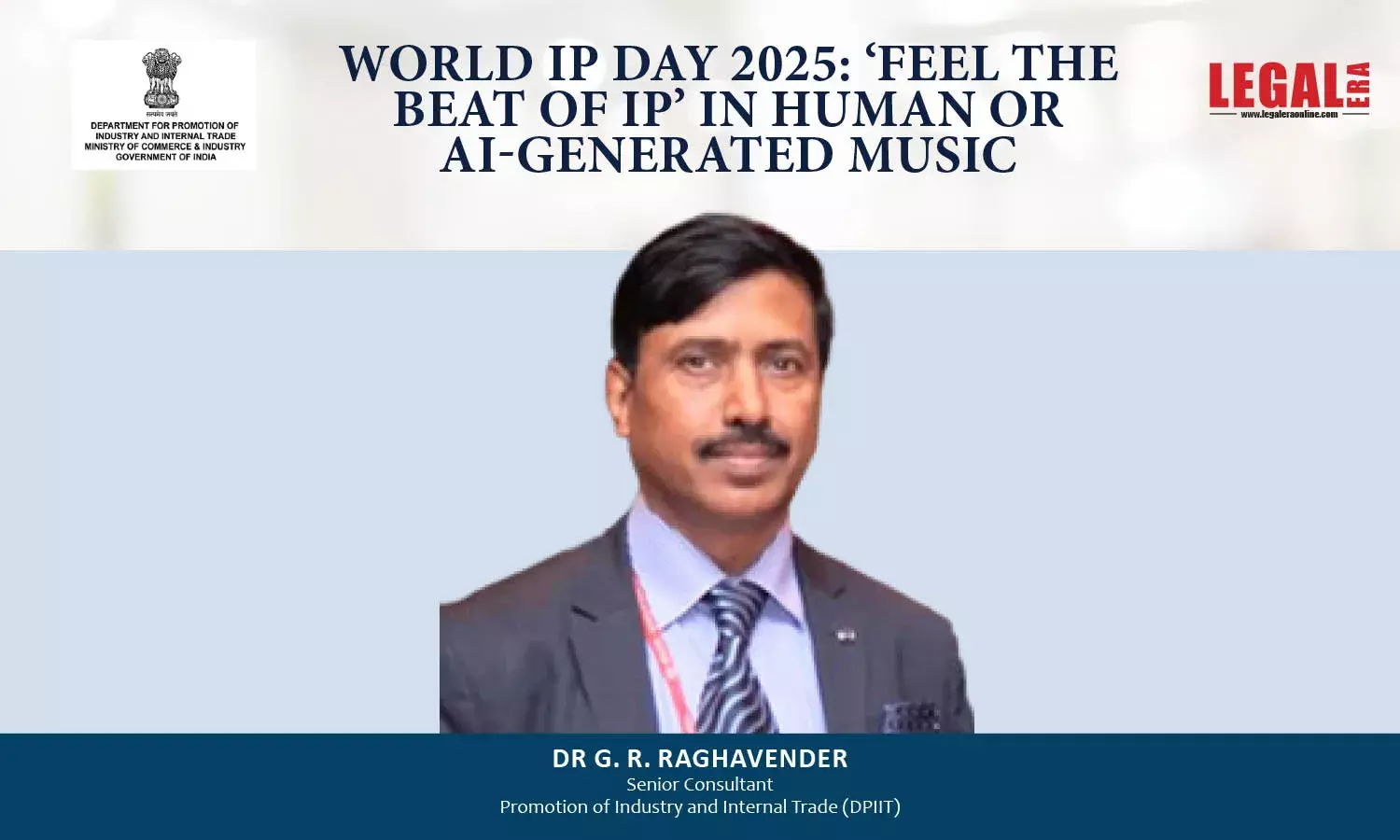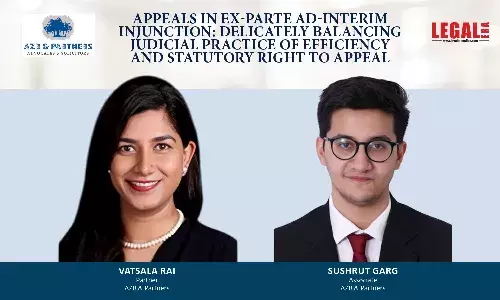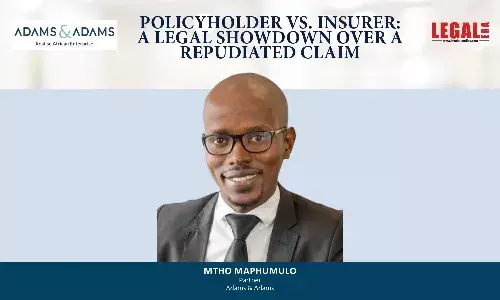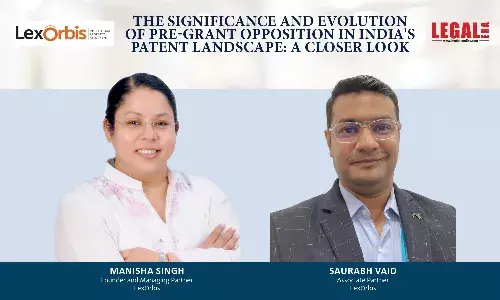Proposed Amendment Of Sections 132 and 132 A of Income Tax Act, 1961: Some Stray Views
The Budget presented by the Finance Minister on February 01, 2017 contains a proposal to amend Sections 132 and 132A of the Income Tax Act, 1961 with retrospective effect from October 01, 1975. Prima facie, one may not fathom the importance of the proposal as contained in the Finance Bill, 2017. Experts are divided on implications it may have on a tax payer’s daily life. Before...
The Budget presented by the Finance Minister on
February 01, 2017 contains a proposal to amend
Sections 132 and 132A of the Income Tax Act, 1961
with retrospective effect from October 01, 1975.
Prima facie, one may not fathom the importance of the
proposal as contained in the Finance Bill, 2017. Experts are
divided on implications it may have on a tax payer’s daily
life. Before arriving at a conclusion whether the proposal
can lead to a situation of
“Tax Terrorism,”
we need to
analyze the proposal.
The proposal is as follows:
“Reason to believe to conduct a
search, etc. not to be disclosed
Sub-sections (1) and (1A) of Section 132 provide that where
an authority mentioned therein, based on the information
in his possession, has “reason to believe” or “reason
to suspect” of circumstances referred to in the said sub-
sections, he may authorize an authority specified therein to
carry out search & seizure.
Similarly, sub-section (1) of Section 132A provides that the
specified income tax authority based on “reason to believe”
can authorize other income tax authority mentioned therein
to requisition from some other officer or authority to deliver
books of account, documents, or assets of the assessee to
the income tax authority so authorized.
Confidentiality and sensitivity are the hallmarks of
proceedings under Section 132 and Section 132A. However,
certain judicial pronouncements have created ambiguity
in respect of disclosure of “reason to believe” or “reason
to suspect” recorded by the income tax authority to
conduct a search under Section 132 or to make requisition
under Section 132A. It is therefore proposed to insert an
explanation to sub-section (1) and sub-section (1A) of
Section 132 and to sub-section (1) of Section 132A to
declare that the “reason to believe” or “reason to suspect,”
as the case may be, shall not be disclosed to any person or
any authority or the Appellate Tribunal.
These amendments will take effect retrospectively from the
date of enactment of the said provisions viz. to sub-section
(1) of Section 132 from 1st day of April, 1962 and to sub-
section (1A) of Section 132 and to sub-section (1) of Section
132A from 1st day of October, 1975.”
The only difference between the existing provision and
proposed amendment is that the “reason to believe” or
“reason to suspect” need not be disclosed to any person
or any authority or Appellate Tribunal. Interestingly, the
finance minister stated that the reason for amending this
section arises out of ambiguity created by certain judicial
pronouncements. Therefore, it is necessary for us to examine
the judicial pronouncement which is alleged to have created
ambiguity in the minds of income tax authorities.
While there are plenty of judgments to substantiate either of
the views, we are now referring to the Supreme Court’s latest
judgment on this subject as decided on May 13, 2015: in the
case of
Director General of Income Tax (Investigation)
Pune & Ors v/s M/s. Spacewood Furnishers Pvt. Ltd. &
Ors. (Arising out of S.L.P. (C) No. 38611 of 2012)
. The
Hon’ble Supreme Court placed heavy reliance on the decision
in
ITO v/s Seth Brothers [1969 (74) ITR 836 (SC)]
and
Pooran Mal v/s Director of Inspection (Investigation),
Income Tax [(1974) 93 ITR 505 (SC)]
, while deciding on
this case. The Hon’ble Supreme Court held that the view as
taken by it in ITO v/s Seth Brothers continues to hold the
field even today. It is therefore necessary to reproduce the
said findings of the Supreme Court,
considering the scope of
Section 132 of the Act in ITO v/s Seth Brothers (supra), this
court at page 843 held that:
“The section does not confer any arbitrary authority
upon the Revenue Officers. The Commissioner or
Director of Inspection must have, in consequence of
information, reason to believe that statutory conditions
for the exercise of the power to order search exist. He
must record reasons for the belief, and he must issue an
authorization in favor of a designated officer to search
the premises and exercise the powers set out therein.
The condition for entry into and making search of any
building or place is the reason to believe that any books
of account or other documents which will be useful for,
or relevant to, any proceeding under the Act may be
found. If the officer has a reason to believe that any
books of account or other documents would be useful
for, or relevant to, any proceedings under the Act, he
is authorized by law to seize those books of account or
other documents and to place marks of identification
therein, to make extracts or copies therefrom, and to
make a note or an inventory of any articles or other things found in the course of the search. Since by the
exercise of the power, a serious invasion is made upon the
rights, privacy, and freedom of the tax-payer, the power
must be exercised strictly in accordance with the law
and only for the purposes for which the law authorizes
it to be exercised. If the action of the officer issuing the
authorization or of the designated officer is challenged,
the officer concerned must satisfy the court about the
regularity of his action. If the action is maliciously taken
or power under the section is exercised for a collateral
purpose, it is liable to be struck down by the court. If
the conditions for exercise of power are not satisfied, the
proceeding is liable to be quashed. But where power is
exercised bona fide and in furtherance of the statutory
duties of the tax officers, any error of judgment on the
part of the officers will not vitiate the exercise of the
power. Where the Commissioner entertains the requisite
belief and for reasons recorded by him authorizes a
designated officer to enter and search premises for
books of account and documents relevant to or useful
for any proceeding under the Act, the court in a petition
by an aggrieved person cannot be asked to substitute
its own opinion whether an order authorizing search
should have been issued. Again, any irregularity in the
course of entry, search, and seizure committed by the
officer acting in pursuance of the authorization will not
be sufficient to vitiate the action taken, provided the
officer has in executing the authorization acted bona
fide.
The Act and the Rules do not require that the warrant
of authorization should specify the particulars of
documents and books of accounts a general [pic]
authorization to search for and seize documents and
books of account relevant to or useful for any proceeding
complies with the requirements of the Act and the Rules.
It is for the officer making the search to exercise his
judgment and seize or not to seize any documents or
books of account. An error committed by the officer in
seizing documents which may ultimately be found not
to be useful for or relevant to the proceeding under the
Act will not by itself vitiate the search nor will it entitle
the aggrieved person to an omnibus order releasing all
documents seized.”
On an analysis of the said view which stands upheld, it is
clear that:
“If the action of the officer issuing the authorization
or of the designated officer is challenged, the officer
concerned must satisfy the court about the regularity
of his action. If the action is maliciously taken or power
under the section is exercised for a collateral purpose, it
is liable to be struck down by the court. If the conditions
for exercise of the power are not satisfied, the proceeding
is liable to be quashed. But where power is exercised bona fide and in furtherance of the statutory duties of
the tax officers, any error of judgment on the part of the
officers will not vitiate the exercise of the power.”
Therefore, what comes to my mind is that the amendment
suffers from only one infirmity, i.e., not providing reasons to
the Tribunal. In the scheme of things, Income Tax Appellate
Tribunal (ITAT), which is functioning for the last five to
six decades, is the highest fact-finding authority. Only
questions of law are referred to the high court. Therefore,
any withholding of the said reason for conducting search
and seizure from the highest fact-finding authority is
violative of the Principles of Natural Justice. Does it
envisage a situation that the ITAT does not find favor or
enjoy the confidence of the Revenue Authorities?
In the scheme of things, one cannot rule out an over-
enthusiastic income tax department resorting to such raids
with no rhyme or reason and invading into the privacy of a
tax payer. Moreover, one cannot rule out this tool being used
by certain unscrupulous officers for undue enrichment.
I focus on an article published in the Times of India, Mumbai
Edition, dated February 15, 2017 by the Hon’ble Lok Sabha
MP Jay Panda. Panda stated that
“without having to show
they had good reasons for raid, there is nothing to prevent
IT officials from conducting them arbitrarily. Harassment
and rent seeking - the term economist use for corruption -
are sure to follow.”
Under these circumstances, unless there are strong controls,
systems, and procedures to prevent the misuse of this power,
the goal proposed to be achieved by this amendment shall
boomerang on revenue authorities and will end up in each
and every assessee filing a Writ Petition under Article 226
in various high courts in India challenging the raid itself as
also requesting the court to direct the department to submit
reasons for conducting such raids.
In my opinion, instead of mechanically approving any
“reasons” or “suspicions” or “beliefs” put by relevant
officers for approval before conducting a raid, a high-
powered committee consisting of senior officers should
dwell on reasons to initiate a raid. It should not be left to
one person’s judgment.
It is also necessary to put fear into the minds of officers
who have initiated the process that if the reasons stated are
found far from reality, strict action would be taken against
them. However, this should not lead to a situation where
fearing such an action, unwarranted evidences are planted
in an assessee’s premises.
In conclusion, while the proposal may pass the test of law
if challenged, may be, with some riders, giving such powers
to income tax authorities without proper and adequate
control may prove to be disastrous.
Disclaimer
- The views are his personal and not that of the firm.



